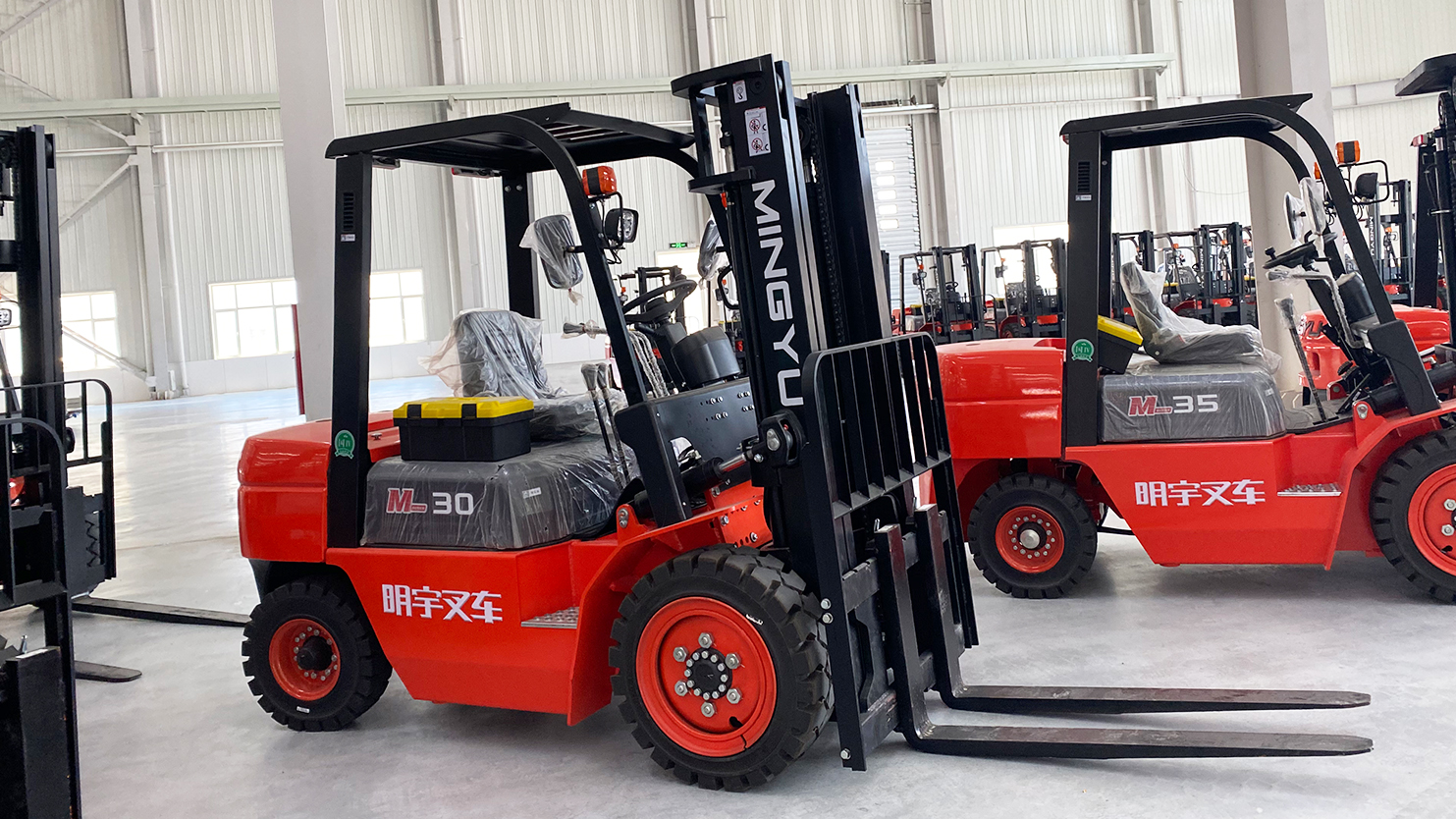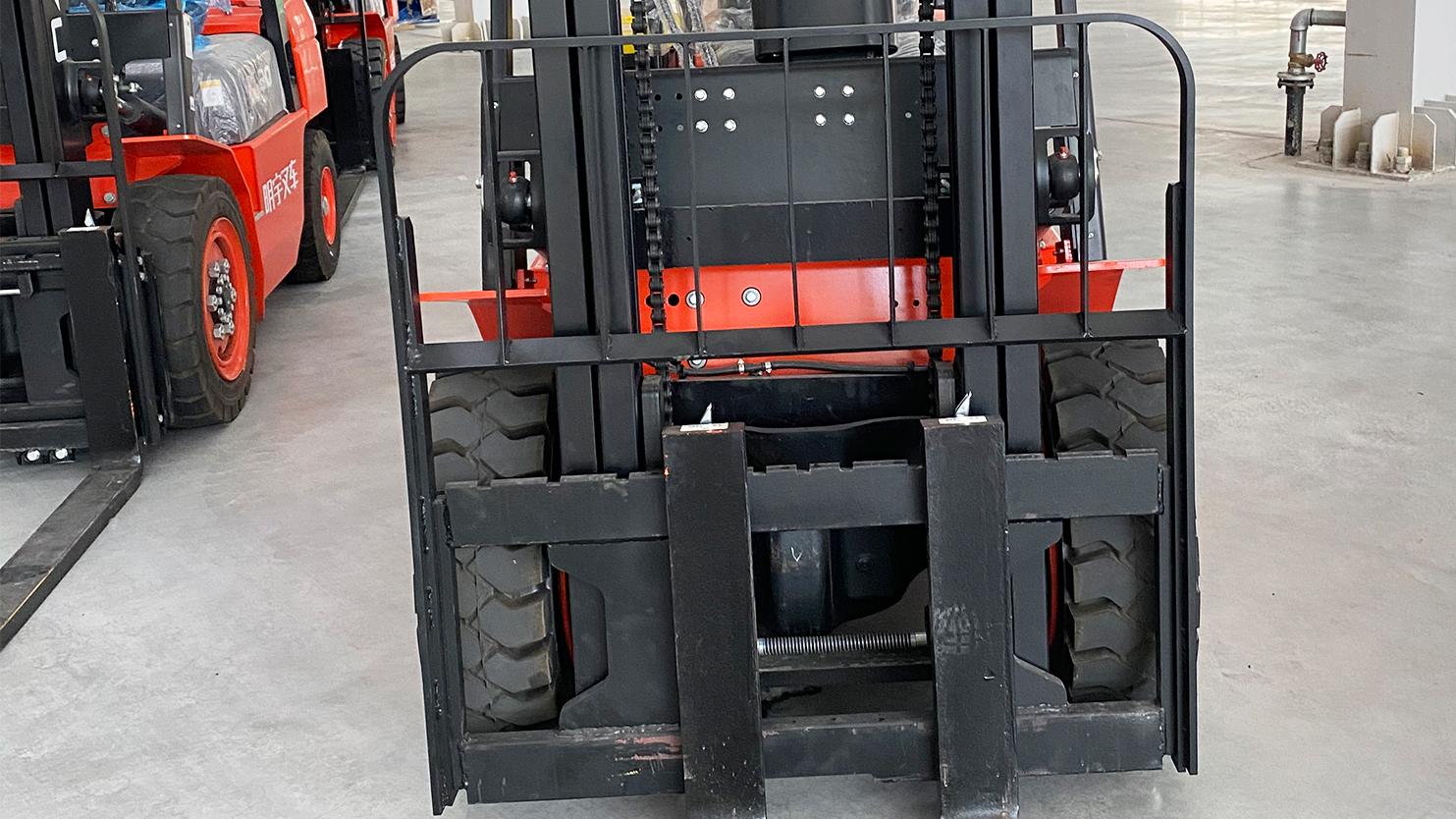I. Introduction
A. Hook: "The thrum of diesel engines echoes through the vast expanse of modern warehouses, where efficiency reigns supreme. In these high-volume environments, a single forklift breakdown can disrupt intricate logistics, leading to costly delays and operational bottlenecks. The sheer volume of material handled daily demands machines that can withstand relentless use, making reliability paramount."
B. Briefly explain the importance of diesel forklifts in heavy-duty applications: "Diesel forklifts, with their robust power and enduring performance, are the backbone of heavy-duty material handling. Their ability to operate for extended periods, even under the most demanding conditions, makes them essential for industries where downtime is simply not an option."
C. State the article's purpose: to identify and assess the most reliable diesel forklift brands for demanding warehouse environments: "This article aims to provide a comprehensive guide to the most reliable diesel forklift brands, focusing on the critical factors that contribute to their performance and longevity in heavy-duty warehouse settings."
D. Outline the article's structure: criteria, brand analysis, maintenance, and future trends: "We will explore the key criteria for evaluating reliability, conduct an in-depth analysis of leading brands, discuss essential maintenance practices, and examine the technological advancements shaping the future of diesel forklifts."
II. Defining Reliability in Heavy-Duty Diesel Forklifts (Approx. 300 words)
A. Engine Performance and Durability:
"Heavy-duty operations require engines that deliver consistent power and torque, capable of handling substantial loads without overheating or stalling. Engine longevity is crucial, with robust construction and efficient cooling systems being essential factors."
Power and torque requirements.
Longevity and maintenance needs.
B. Structural Integrity and Build Quality:
"The frame, mast, and lifting mechanisms must be built to withstand the rigors of continuous operation. A strong, durable frame provides a stable foundation, while a robust mast and lifting mechanism ensure safe and efficient load handling."
Frame strength and robustness.
Mast and lifting mechanism durability.
C. Hydraulic System Performance:
"Reliable hydraulic systems are essential for smooth and precise lifting, tilting, and steering. Durable pumps, valves, and cylinders are crucial for preventing leaks and ensuring consistent performance. Proper fluid management and regular inspections are vital."
Reliability of pumps, valves, and cylinders.
Leak prevention and fluid management.
D. Drivetrain and Transmission Resilience:
"The drivetrain and transmission must be capable of handling heavy loads and navigating demanding warehouse environments. A durable gearbox, robust axles, and high-quality tires contribute to smooth operation and extended lifespan."
Gearbox durability and smooth operation.
Axle and tire strength.
E. After-Sales Support and Parts Availability:
"Even the most reliable forklifts require maintenance and occasional repairs. A strong dealer network and readily available parts are essential for minimizing downtime. Prompt service and technical support are crucial for maintaining operational efficiency."
Dealer network and service quality.
Parts availability and delivery speed.
III. In-Depth Brand Analysis
A. Brand 1: (e.g., Toyota)
"Toyota, renowned for its commitment to quality and reliability, offers a range of diesel forklifts designed for heavy-duty applications. Their engines are known for their durability and fuel efficiency, and their build quality is consistently high. User feedback often highlights their smooth operation and minimal downtime."
Company overview and reputation.
Specific models suitable for heavy-duty use.
Analysis of reliability based on defined criteria.
User feedback and industry reviews.
B. Brand 2: (e.g., Caterpillar)
"Caterpillar, a global leader in heavy machinery, produces robust diesel forklifts built for demanding environments. Their engines deliver high torque and power, and their structural integrity is exceptional. Caterpillar's extensive dealer network provides excellent after-sales support."
Company overview and reputation.
Specific models suitable for heavy-duty use.
Analysis of reliability based on defined criteria.
User feedback and industry reviews.
C. Brand 3: (e.g., Hyster-Yale)
"Hyster-Yale is another strong contender, with a long history of producing reliable forklifts. Their heavy-duty models are known for their rugged construction and powerful hydraulic systems. Hyster-Yale's focus on operator comfort and ergonomics is also a significant advantage."
Company overview and reputation.
Specific models suitable for heavy-duty use.
Analysis of reliability based on defined criteria.
User feedback and industry reviews.
D. Brand 4: (e.g., Komatsu)
"Komatsu provides reliable forklifts that are engineered for performance. They offer a great balance of power, fuel efficiency, and durability. Komatsu's technology focused approach offers many fleet management solutions, and their machines are known for their robust construction."
Company overview and reputation.
Specific models suitable for heavy duty use.
Analysis of reliability based on defined criteria.
User feedback and industry reviews.
E. Comparative analysis: highlighting key differences and strengths: "While each brand excels in certain areas, a comparative analysis reveals that Toyota and Caterpillar consistently rank high in overall reliability. Hyster-Yale and Komatsu offer strong alternatives with unique strengths. Factors such as specific warehouse needs, budget, and after-sales support should be considered when making a final decision."
IV. Maintenance and Operational Best Practices
A. Importance of Regular Maintenance:
"Regular maintenance is crucial for maximizing the lifespan and reliability of diesel forklifts. Adhering to scheduled service intervals, performing routine inspections, and promptly addressing any issues are essential for preventing breakdowns."
Scheduled service intervals and procedures.
Preventive maintenance for heavy-duty use.
B. Common Maintenance Issues and Solutions:
"Engine maintenance typically involves oil changes, filter replacements, and fuel system checks. Hydraulic system checks include inspecting for leaks, monitoring fluid levels, and replacing worn components. Transmission and drivetrain upkeep involves inspecting gears, axles, and tires for wear and damage."
Engine maintenance and troubleshooting.
Hydraulic system checks and repairs.
Transmission and drivetrain upkeep.
C. Operator Training and Best Practices:
"Proper operator training and usage are essential for preventing premature wear and tear. Environmental considerations, such as minimizing exposure to dust and extreme temperatures, can also extend forklift lifespan. Using OEM parts ensures compatibility and quality."
Proper forklift operation for longevity.
Warehouse environment considerations.
V. Technological Advancements and Future Outlook
A. Engine Technology and Emissions Standards:
"Tier 4 Final and future emission regulations are driving advancements in engine technology. Manufacturers are focusing on developing cleaner and more fuel-efficient engines to meet these standards. Alternative fuel options, such as biodiesel, are also being explored."
Tier 4 Final and future emission regulations.
Fuel efficiency and alternative fuel options.
B. Telematics and Fleet Management Systems:
"Telematics and fleet management systems provide real-time data on forklift performance, enabling remote monitoring and diagnostics. Data-driven maintenance and performance optimization can significantly improve operational efficiency and reduce downtime."
Remote monitoring and diagnostics.
Data-driven maintenance and performance optimization.
C. Alternative Power Sources in Heavy-Duty Warehouses:
"While diesel forklifts remain the workhorses of heavy-duty operations, electric and hybrid forklifts are gaining traction in certain applications. Considerations for future warehouse operations include the availability of charging infrastructure and the environmental impact of power generation."
Brief overview of electric and hybrid forklift options.
Considerations for future warehouse operations.
D. Conclusion: "In the demanding world of heavy-duty warehousing, reliability is the cornerstone of efficient operations. Toyota and Caterpillar consistently emerge as the most reliable diesel forklift brands, offering robust performance and exceptional durability. Hyster-Yale and Komatsu provide strong alternatives with unique strengths. By prioritizing regular maintenance, embracing technological advancements, and considering evolving power sources, warehouses can ensure their material handling remains seamless and productive."
Post time:Mar.21.2025



